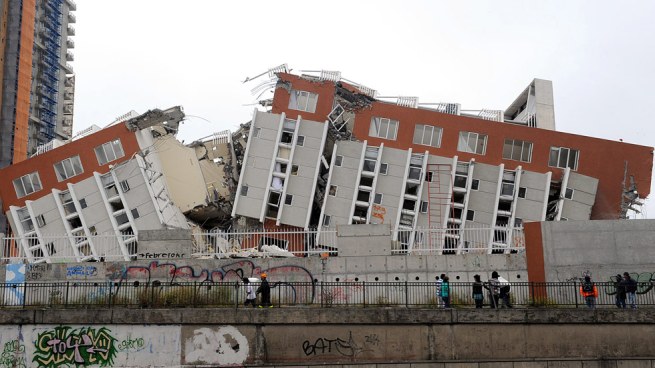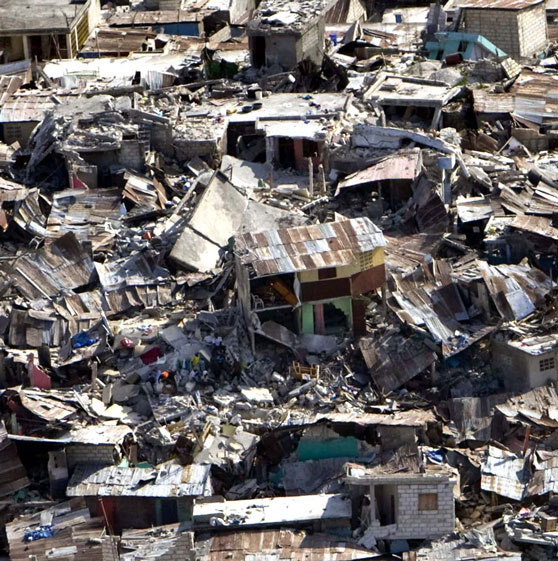I couldn’t help but notice as I researched figures and facts for my last post that, once again, I was at a loss in finding pictures of any of the approximately 700 bodies that have been dug from the Chilean rubble. I have no real desire to see what I already knew to be the most tragic cost of the disaster on either the television screen or the front page of news sites, but I must say that I was somewhat confused when, even after performing an image search for “Chile+Earthquake+Bodies” in Google, not a single picture emerged.
Is it that news stations have found another focus in the aftermath of this disaster? I have already seen several interviews from survivors which provide an even more gripping tale of terror than an image of the dead– which, of course, is accompanied by the obvious tale of triumph pointing to the person being interviewed as a survivor.
It is possible that the difference in coverage is meant to draw the viewers attention to the weighty factor of death in the case of Haiti over that of the deaths in Chile. It is also possible that the Chilean government’s speedy attempts at recovery made shots like the one below of Haiti harder to obtain while walking down the streets of its capital city.
However, regardless of the circumstances which made for great photo opportunities in either case, my point remains that media outlets ultimately decide what they will publish/broadcast to represent the type of coverage they intend to offer.
Is the difference in what the networks have thus far decided to capture within these two cases of widespread natural disaster governed by the socioeconomic status of the victims? Is it easier for American people to digest pictures of death from a country full of individuals far-removed from the levels of everyday comfort that we enjoy? Far-removed in the complexion of their skin as well?
Chile, on the other hand, is one of South America’s most prosperous nations.
And yeah, they have tall buildings like we do….they wear nice clothes….. and have big, naval warships like the U.S. They’re also pretty fair-skinned.
There’s something fishy going on here. What do you think?










